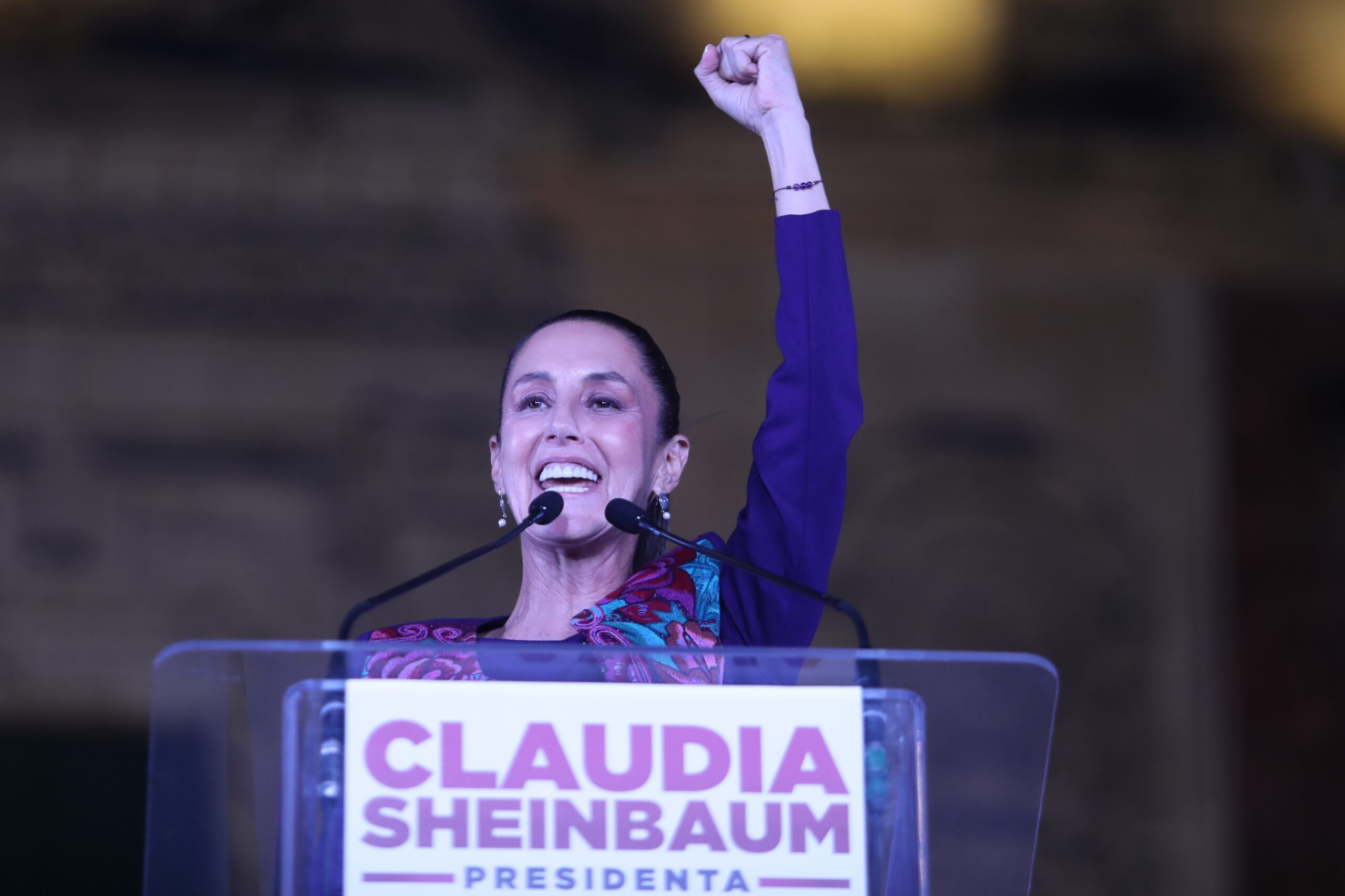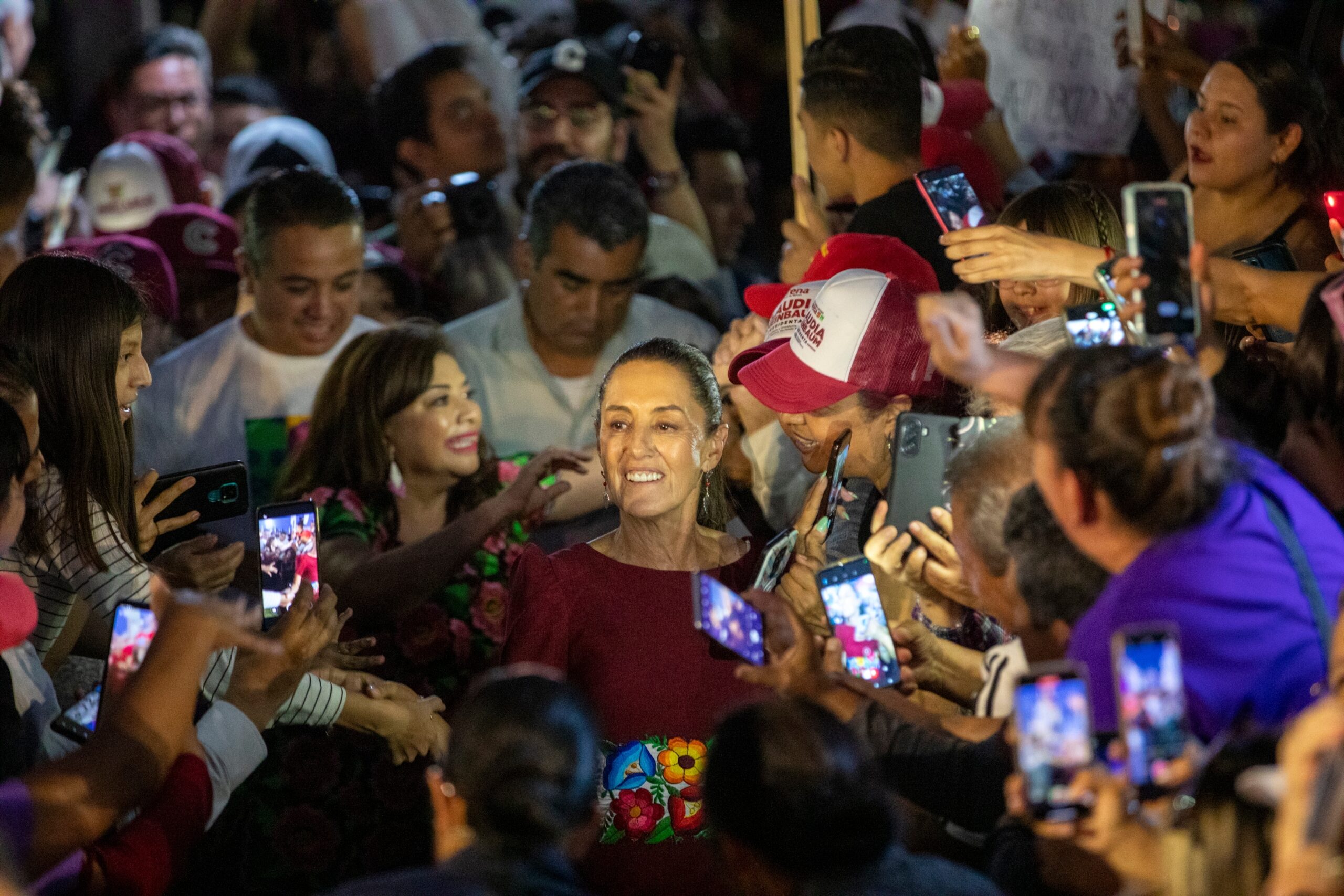Will Mexico see its first female president, ushering in a new era of history?

TEXT : Pedro Nunes
In June 2024, Mexico saw its first female president elected into office. Claudia Sheinbaum, formerly the mayor of Mexico City and a member of the ruling party, emerged victorious in the presidential race. The outcome of this election raises questions about its potential impact on Mexico's future. Exploring Sheinbaum's campaign promises, the positions of her opponents, the challenges and societal context Mexico faces, as well as post-election remarks, could provide insight into what lies ahead for the country.
In 1821, Mexico achieved independence from Spanish rule, and in 1824, it established a federal republic. Celebrating 200 years of independence, Mexico held its first-ever presidential election with Claudia Sheinbaum nominated by the ruling party, Movimiento Regeneración Nacional (MORENA). She faced unified opposition from a coalition of opposition parties—Partido Acción Nacional (PAN), Partido Revolucionario Institucional (PRI), and Partido de la Revolución Democrática (PRD)—represented by former senator Sochil Galvés and former congressman Jorge Álvarez Máynez of Movimiento Ciudadano (MC).
Sheinbaum won decisively with over 60% of the vote, more than doubling the approximately 30% received by second-place Galvés. In Spanish, "presidente" refers to a male president, while "presidenta" is used for a female president. This election marked the historic inauguration of Mexico's first "presidenta," Claudia Sheinbaum.

Claudia Sheinbaum was born into a family of scientists. After earning a PhD in Environmental Engineering from the National Autonomous University of Mexico (UNAM), she participated in United Nations activities and received recognition, including a Nobel Prize. In 2000, during the tenure of former President Andrés Manuel López Obrador as Mayor of Mexico City, Sheinbaum was appointed as the city's Environmental Secretary, marking her entry into politics. She later served as the mayor of the Tlalpan borough of Mexico City before assuming the mayorship of Mexico City in 2018. Sheinbaum's candidacy in the recent presidential election was endorsed by the ruling party, marking a significant step in her political career.
In the presidential election, the key issues debated were addressing low-income issues, combating organized crime, and handling illegal immigration. Opposition candidate Galvés proposed strengthening domestic security forces to restore public safety and increasing border security cooperation with the United States to prevent illegal immigration. Similarly, opposition candidate Máynez focused primarily on improving domestic security.
Claudia Sheinbaum, nominated as the successor by former President López Obrador from the ruling party, pledged to continue policies such as raising the minimum wage. Additionally, she proposed establishing a prosecution organization for crimes against women, introducing new policies alongside those of her predecessor. Regarding immigration policy, she advocated for the rights of immigrants living in the United States and emphasized a stance of equality rather than subservience in relations with the US.

In the presidential elections of 2006 and 2012, the winning candidates received just over 30% of the votes. However, in the previous election in 2018, Mr. Lopez Obrador garnered over 50% of the vote. In the current presidential election, Mr. Shanebaum has secured over 60% of the vote. Moreover, in the concurrent congressional elections, the ruling party expanded its support. Such high approval from the public can be attributed to evaluations of the policies of the previous administration and the expectations placed on Mr. Shanebaum, who continues these policies.
Following his victory in the election, Mr. Shanebaum stated in his speech that he would be Mexico's first female president and expressed gratitude to the women who supported him. He will assume office as the new president on October 1st, serving a 6-year term. While Mr. Lopez Obrador remains popular, challenges such as fiscal deficits due to increased public investment and welfare policies, water scarcity caused by drought, and energy procurement issues persist. The extent to which President Shanebaum will continue and improve upon the policies of the previous administration remains to be seen, making his future actions a subject of keen interest.
